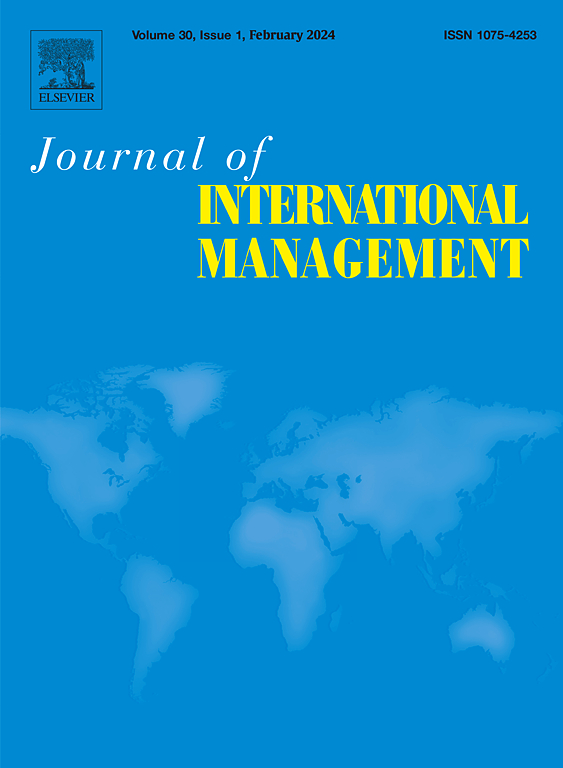超越数字游戏:了解组织对中东国有化政策的反应
IF 4.9
2区 管理学
Q1 MANAGEMENT
引用次数: 0
摘要
尽管有潜在的好处,但侧重于发展国家劳动力的国有化举措(如卡塔尔化)对组织绩效的影响在很大程度上仍然难以捉摸。从卡塔尔组织的313个回应中,本研究通过调查卡塔尔化作为人力资源管理发展指标(即卡塔尔化有效性)与卡塔尔化作为统计指标(标记为卡塔尔就业指标,衡量卡塔尔员工比例较高)与组织绩效(财务和非财务)之间的关联,阐明了这些动态。通过揭示卡塔尔化效应对财务和非财务绩效均有正向影响,为人力资本理论和资源基础观理论提供了实证支持。然而,卡塔尔工作人员比例较高本身并不一定意味着业绩更好,实际上可能对非财务结果产生负面影响。我们进一步研究了复杂的制度背景,发现利益相关者的不确定性削弱了卡塔尔化有效性对非财务绩效的积极影响,而卡塔尔化专业知识的存在可以抵消卡塔尔员工高比例对非财务绩效的不利影响。研究结果增强了我们对中东国有化公共政策的复杂性及其对组织绩效的影响的理解,从而强调了战略人力资源管理实践对有效实施人力资本政策的必要性。本文章由计算机程序翻译,如有差异,请以英文原文为准。
Beyond the numbers game: understanding organizational response to nationalization policy in the Middle East
Despite its potential benefits, the impact of nationalization initiatives that focus on developing the national workforce, such as Qatarization, on organizational performance remains largely elusive. Drawing from 313 responses from organizations in Qatar, this study illuminates these dynamics by investigating the associations between Qatarization as an indicator of HRM development, namely Qatarization effectiveness, and Qatarization as a statistical indicator, labeled as Qatari Employment Metric that measures higher proportion of Qatari staff, with organizational performance (both financial and non-financial). Our findings provide empirical support for the human capital theory and resource-based view theory through disclosing that Qatarization effectiveness has a positive impact on both financial and non-financial performance. However, a higher proportion of Qatari staff by itself does not necessarily signal better performance and may, in fact, negatively influence non-financial outcomes. We further examine the complex institutional context and discover that stakeholder uncertainty attenuates the positive effect of Qatarization effectiveness on non-financial performance, while the presence of Qatarization expertise can counterbalance the adverse impact of high percentage of Qatari staff on non-financial performance. The results enhance our understanding of the complexities of nationalization public policies and their bearing on organizational performance in the Middle East, thereby emphasizing the necessity of strategic human resource management practices for effective human capital policy implementation.
求助全文
通过发布文献求助,成功后即可免费获取论文全文。
去求助
来源期刊

Journal of International Management
MANAGEMENT-
自引率
9.80%
发文量
67
审稿时长
81 days
期刊介绍:
The Journal of International Management is devoted to advancing an understanding of issues in the management of global enterprises, global management theory, and practice; and providing theoretical and managerial implications useful for the further development of research. It is designed to serve an audience of academic researchers and educators, as well as business professionals, by publishing both theoretical and empirical research relating to international management and strategy issues. JIM publishes theoretical and empirical research addressing international business strategy, comparative and cross-cultural management, risk management, organizational behavior, and human resource management, among others.
 求助内容:
求助内容: 应助结果提醒方式:
应助结果提醒方式:


